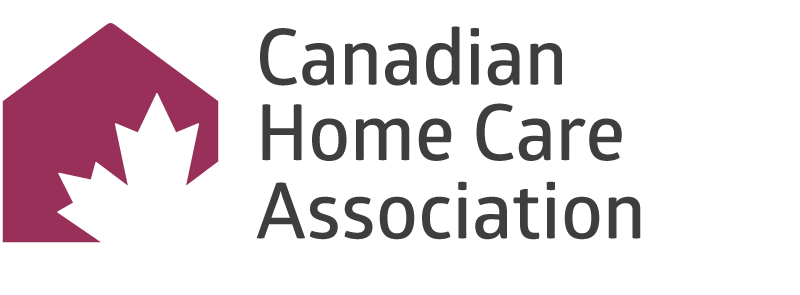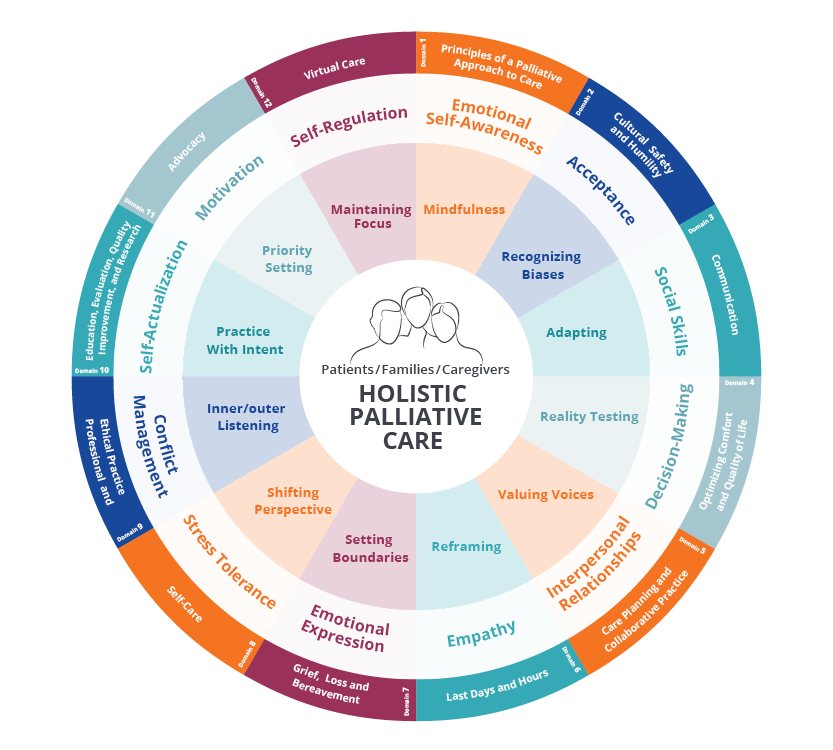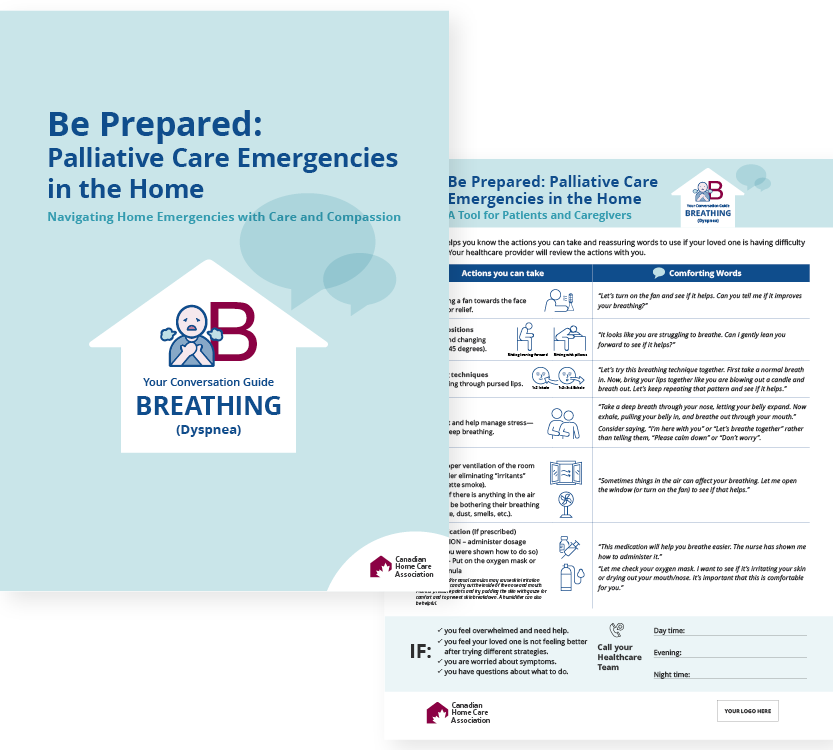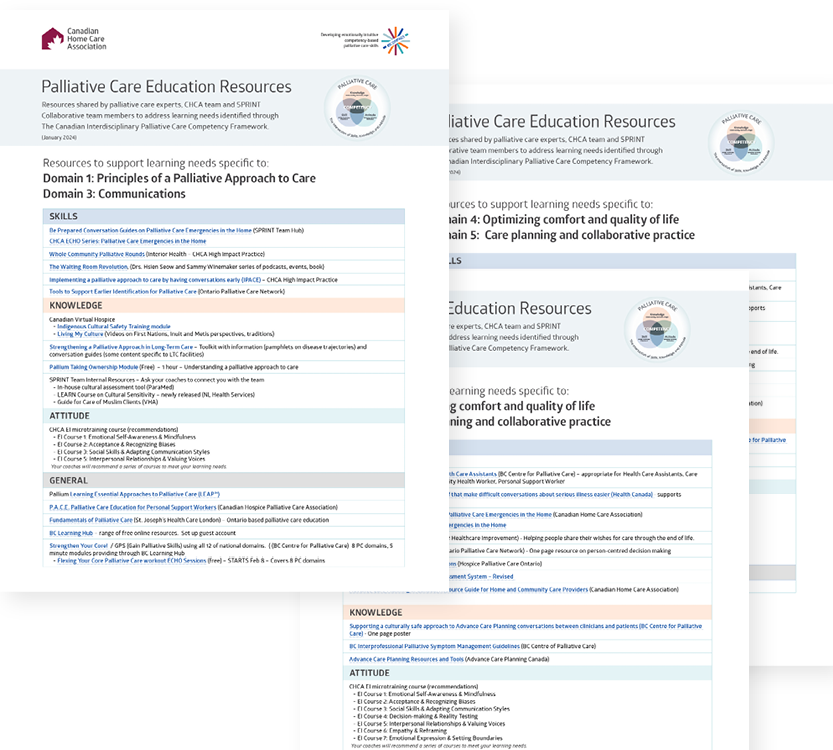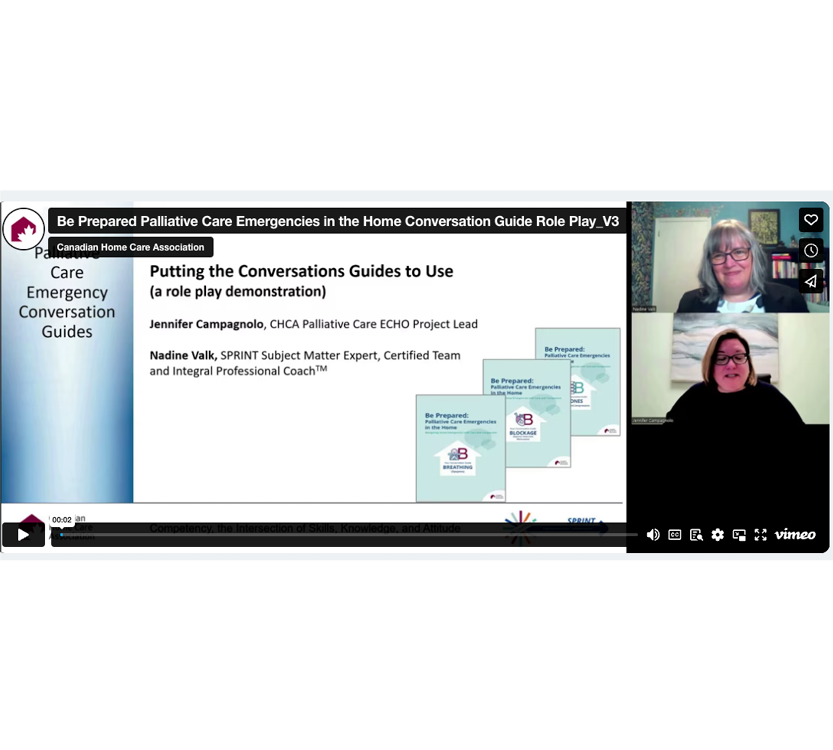Conversation Guides to assist healthcare providers in having compassionate and effective discussions with patients, their caregivers, and families about managing palliative care emergencies at home.
Guides are available in web and print versions and can be customized with the organization logo.
Guides include a conversation checklist for providers; details on the palliative care emergency (including condition, signs, symptoms, and risk factors), and a detachable tool for patients and caregivers, featuring actions and information for their use.
